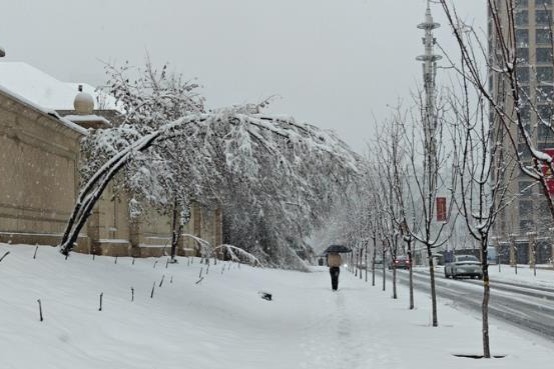Scholar notes progress in hukou reform


Boosting internal consumption shows China has eyes on post-COVID policies
As the two sessions continue, China scholar Jon Taylor said the meetings signify that the nation is already looking to the future regarding policy initiatives in the post-COVID world.
The professor and chairman of the political science and geography department at the University of Texas in San Antonio said that one recent change in China had especially caught his eye, and this was that the pandemic might have helped accelerate the reform of household registration in second-, third- and fourth-tier cities.
Created in the 1950s, the household registration system, or hukou in Chinese, links places of residency to benefits and services received. With large numbers of migrant workers moving from rural areas to cities, the country has been trying to reform the system for two decades.
"China tried all sorts initiatives to encourage the reform of household registration. For a long time, it was difficult to push out reforms in this area," Taylor said.
He said that one consequence of the pandemic has been a labor shortage. Out of necessity and for practical reasons, municipal governments have begun to waive or relax many requirements for getting city residency for migrant workers, and the process has been speeded up.
"To me, this is actually an important internal economic development issue because it means that China is recognizing all these people who have migrated to the cities," Taylor said.
"Municipal governments will be able to tax them and they will gain access to certain services. This directly speaks to the concept of common prosperity, among other things."
According to China's National Statistics Bureau, 64.72 percent of the population lived in urban areas last year. Increased urbanization will translate into domestic consumption and boost dual circulation, Taylor said, as China has to look inward for growth due to the disruptions caused by the trade war initiated by former US president Donald Trump's administration and worsened by the pandemic. "Now, migrant workers are able to purchase property, thereby contributing to domestic economic growth and consumption," he said. "As a consequence, China's problem of children being left in the care of grandparents in rural areas will begin to fade. It's a good thing for society."
The acceleration of urbanization might have another unintended consequence-that of stimulating more economic growth in the country's western region, Taylor said.
Another visible change the professor noted is the digitalization of the court system.
"China is essentially making the court system much more digital friendly and web friendly in terms of holding court cases, disposing of cases and record keeping," Taylor said.
He also pointed out that many other policy initiatives and experiments at the provincial and local levels are being carried out, such as to property tax structure, education and, in particular, a push toward unified standards for higher education.
As a sports fan, Taylor enjoyed watching the 2022 Beijing Winter Olympic Games.
"The fact that China was able to pull such an event off in the middle of the pandemic, and able to prevent a massive outbreak, speaks to China's ability," he said.
News of arrests of those caught infringing on the intellectual property rights of the Olympic mascots was also another positive development.
"It tells people that China is trying to do a better job on intellectual property rights protection. That was demonstrated during the Olympics. That at least tells me that China is starting to put its money where its mouth is."
As for the winter sports infrastructure built for the Olympics, he said in reference to venues built in Chongli in Hebei province: "It leads back to domestic consumption. The new ski resorts and ice rinks will encourage people to enjoy recreational sports and spend money in relatively impoverished regions."
- Newborn with congenital heart disease receives life-saving surgery in Yunnan
- Hong Kong charity signs diplomatic talent deal with Beijing university
- Aircraft carrier Fujian, commissioned
- Erdos offers 10,000 yuan subsidy for families having third child
- Qingdao conference promotes fair and rational global economic order
- China commissions CNS Fujian in Hainan province



































